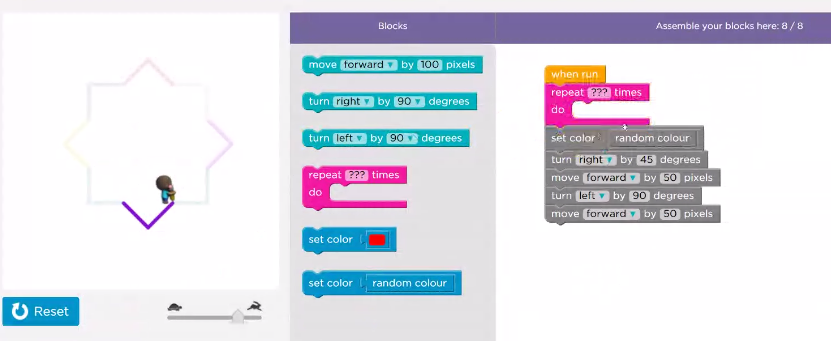Code.org for Kids: Empowering Young Minds in Coding

Code.org for Kids: Empowering Young Minds in Coding
In the rapidly advancing digital age, Code.org has emerged as a transformative platform, empowering young minds to explore the world of coding. This article delves into the significance of Code.org for kids, highlighting its role in fostering coding skills, promoting inclusivity, and shaping the future of tech education.
Interactive Learning with Code.org: A Gateway to Coding Proficiency
Code.org provides an interactive and user-friendly environment designed to make coding accessible for kids. Through a series of engaging activities, lessons, and puzzles, children are introduced to coding concepts in a playful manner. The platform serves as a gateway for kids to develop coding proficiency while having fun, laying the groundwork for a lifelong journey in technology.
Inclusivity in Coding Education: Breaking Barriers for All
A standout feature of Code.org is its commitment to inclusivity in coding education. The platform is designed to cater to diverse learners, regardless of age, background, or prior coding experience. This inclusivity ensures that children from various demographics have the opportunity to engage with coding, breaking down traditional barriers and fostering a sense of equality in tech education.
Structured Curriculum: Building a Foundation for Future Success
Code.org offers a well-structured curriculum that takes learners on a progressive journey through coding fundamentals. Starting from basic concepts, such as sequencing and loops, the curriculum gradually advances to more complex coding skills. This structured approach not only builds a solid foundation for coding but also instills a sense of achievement as children progress through the curriculum.
Hour of Code Initiatives: Sparking Interest in a Short Time
Code.org is a pioneer in the “Hour of Code” initiatives, encouraging schools and educators to dedicate an hour to coding activities. This focused approach allows kids to experience the joy of coding in a short time, sparking interest and curiosity. The Hour of Code initiatives have become a global movement, reaching millions of children and inspiring a passion for technology.
Visual Coding Interface: Simplifying Complexity for Young Learners
One of Code.org’s strengths lies in its visual coding interface, which simplifies the complexity of traditional coding languages. Instead of typing lines of code, kids use drag-and-drop blocks that represent coding commands. This visual approach makes coding less intimidating for young learners, allowing them to focus on the logic and creativity behind coding concepts.
Game-Based Learning: Making Coding an Adventure
Code.org incorporates game-based learning elements, turning coding into an adventurous journey. Coding challenges and puzzles are presented as games, motivating children to solve problems and complete levels. This gamified approach not only makes coding enjoyable but also instills a sense of accomplishment as kids overcome coding challenges, reinforcing the joy of learning.
Teacher Resources and Support: Empowering Educators
Recognizing the vital role of educators, Code.org provides a wealth of resources and support for teachers. The platform offers lesson plans, training materials, and professional development opportunities to empower educators in delivering effective coding education. This collaborative approach ensures that teachers are equipped to guide students through the coding journey.
Engaging Coding Projects: Applying Knowledge in Real-World Scenarios
Code.org encourages the application of coding knowledge through engaging projects. From creating animations and games to programming interactive stories, kids have the opportunity to apply their coding skills in real-world scenarios. These projects not only reinforce coding concepts but also nurture creativity and problem-solving skills.
Community and Collaboration: Connecting Young Coders
Code.org fosters a sense of community among young coders. Through online forums, events, and collaborative projects, kids can connect with peers who share a passion for coding. This sense of community not only provides support and encouragement but also introduces children to the collaborative nature of coding in the real world.
Code.org for kids stands at the forefront of coding education, inspiring young minds to explore the possibilities of technology. Embrace the empowering journey that Code.org offers, and join the movement to equip the next generation with essential coding skills for the ever-evolving digital landscape.



